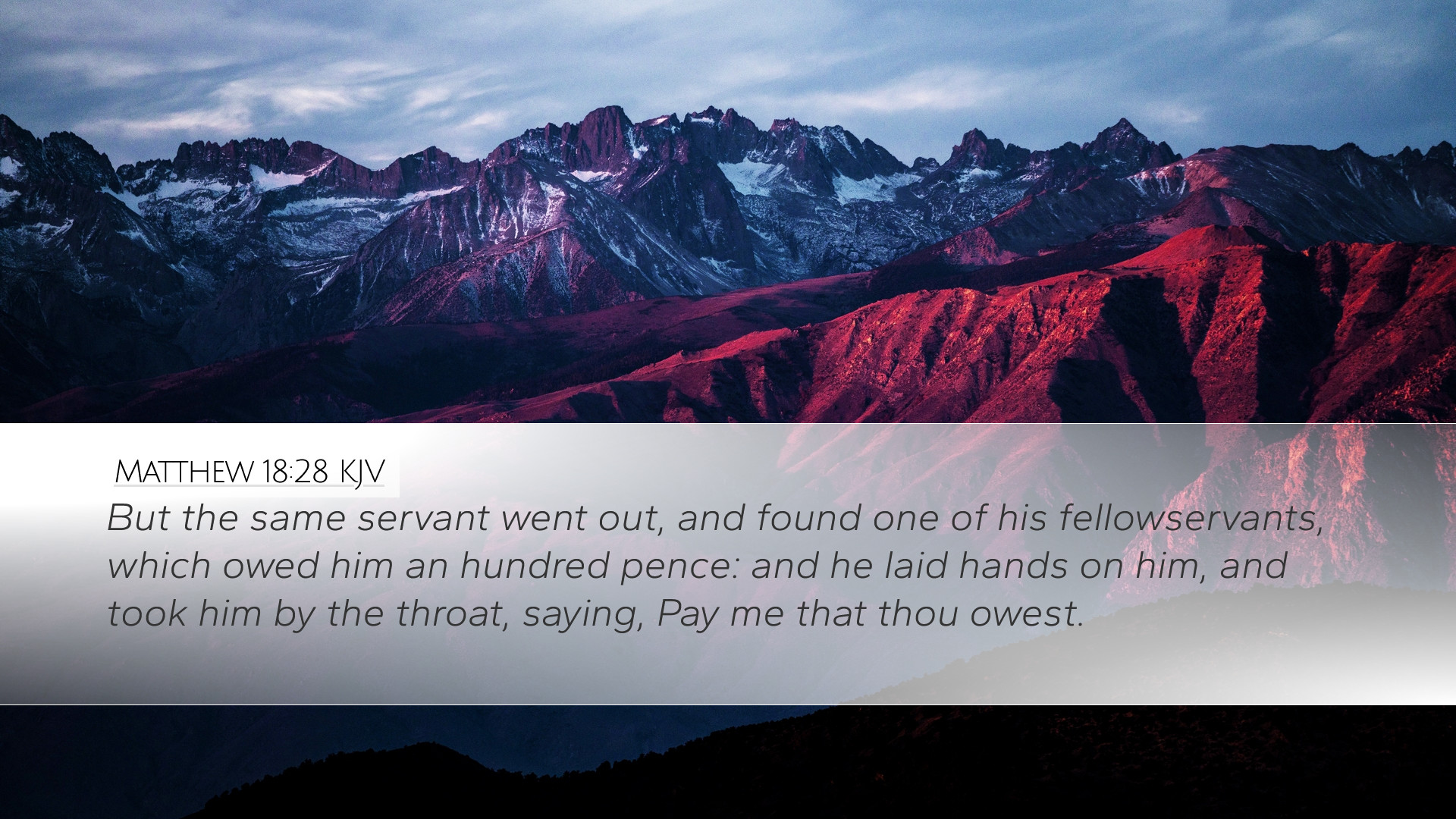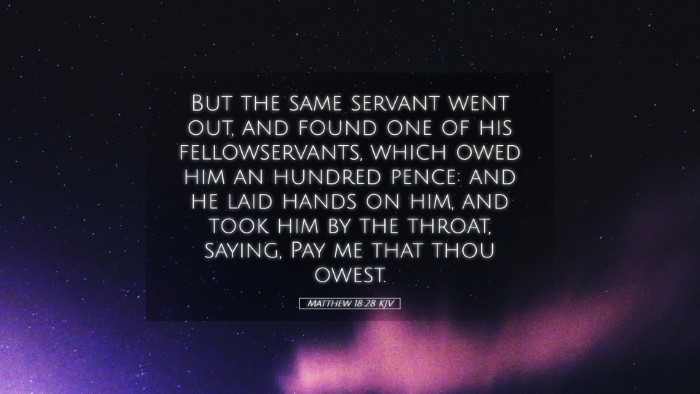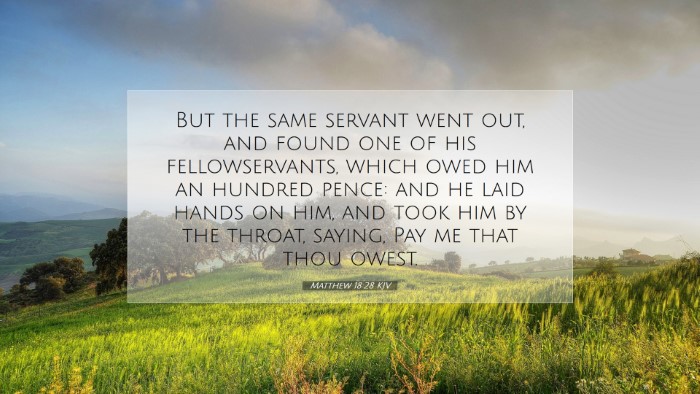Commentary on Matthew 18:28
Matthew 18:28 states: "But that servant went out, and found one of his fellow servants, which owed him an hundred pence: and he laid hands on him, and took him by the throat, saying, Pay me that thou owest."
Introduction
This verse serves as a pivotal moment in the parable of the unforgiving servant, illustrating the stark contrast between God's boundless mercy and the servant's unforgiving heart. The weight of these verses reveals profound truths about forgiveness, debt, and the human tendency to forget the grace extended to us.
Contextual Overview
Matthew 18:21-35 presents a parable that underscores the importance of forgiveness in Christian life. Following Peter’s inquiry about the limits of forgiveness, Jesus conveys a teaching that emphasizes God's expectation of His followers to extend grace as they have received it.
Analysis of Key Themes
- Mercy and Forgiveness: The primary theme encapsulated in this passage is the call to demonstrate mercy. The servant who has been forgiven an astronomical debt does not reflect that mercy towards his fellow servant. This reveals the inconsistency in human behavior regarding divine grace.
- Debt as a Metaphor: The concept of debt in this parable represents the moral and spiritual obligations we owe to God versus our obligations to each other. The hundred pence owed by the fellow servant is trivial compared to the considerable debt forgiven to the first servant.
- Judgment: The servant's harsh treatment of his colleague bears consequences. This underscores the truth that our willingness to forgive directly ties into how we will be treated by God.
Commentary Insights
Matthew Henry's Commentary
Matthew Henry emphasizes the servant's lack of compassion after receiving forgiveness. He notes that despite being released from a tremendous debt, the servant's actions demonstrate a failure to grasp the magnitude of his own forgiveness. Henry states that "this is the common practice of those who receive mercy for their own sins but are unwilling to extend that mercy to others." This refusal leads to a critical examination of our attitudes toward forgiveness.
Albert Barnes' Notes
Albert Barnes expounds on the significance of the hundred pence, interpreting it as a trivial amount compared to the ten thousand talents previously forgiven. He remarks that the act of choking his fellow servant signifies anger and a desire for immediate retribution, reflecting the inability of humans to emulate the grace that has been shown to them. Barnes urges readers to understand that "a spirit of unforgiveness is often rooted in pride and self-righteousness."
Adam Clarke's Commentary
Adam Clarke provides further exposition by examining the societal implications of debt in the Jewish culture of the time. He posits that the servant's actions were not only unjust but socially unacceptable, as mercy and forgiveness were vital tenets of Jewish law. Clarke highlights the theological implication that should reflect in the life of a believer: "Forgiveness is not merely a moral obligation but a reflection of God's character; to fail in this duty signifies a profound misunderstanding of divine grace."
Practical Applications
The application of Matthew 18:28 transcends the mere understanding of the text and calls for an introspective examination of our hearts.
For Pastors and Ministry Leaders
- Preaching Forgiveness: Emphasize the necessity of forgiveness in sermons; help congregations understand the implications of holding grudges.
- Modeling Grace: As leaders, model forgiveness in personal and community dealings; congregants will look to you as an example.
For Theologians and Scholars
- Deepened Historical Context: Explore the cultural significance of debts in biblical times as a means to fully appreciate the parable's depth.
- Ethics of Forgiveness: Investigate the moral implications of this text within contemporary ethical discussions surrounding forgiveness.
For Bible Students
- Personal Reflection: Regularly assess your own attitudes toward forgiveness; ask whether you are extending the grace received from God to others.
- Group Discussions: Engage in discussions with fellow students about overcoming barriers to forgiveness and the implications on personal relationships.
Conclusion
Matthew 18:28 serves as a critical reminder of the necessity of extending forgiveness to others as a reflection of the grace received from God. As we embrace this teaching, we must continually reflect on our actions and attitudes, ensuring they align with the loving nature of God. The call to forgive is not just a theological concept but a lifestyle that transforms both the giver and the receiver of grace.


